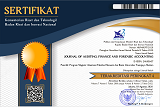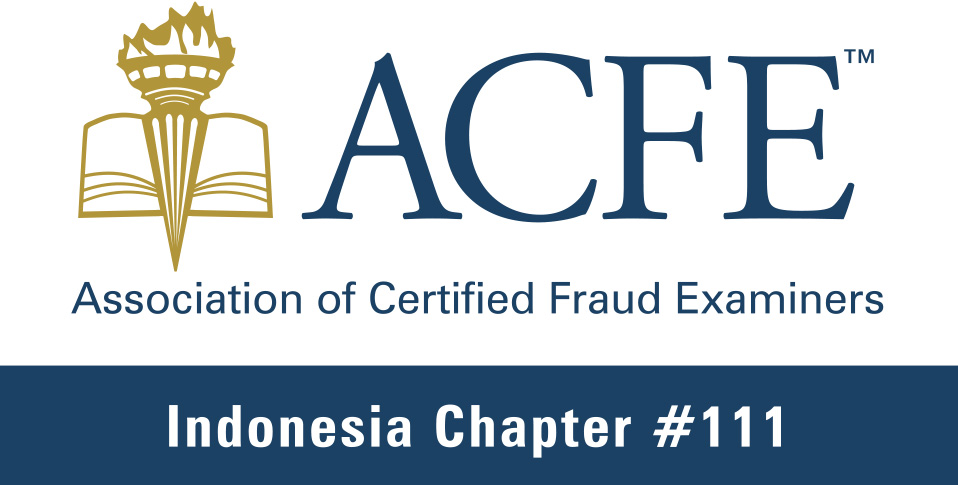Internal Control Perspective Based on Islamic Worldview
Abstract
The purpose of the study is to explore and explain the perspective of internal control in the Islamic worldview. This research uses a descriptive qualitative method with Al-Quran and Al-Hadith and related references as research sources. Although the internal control framework model used is based on the COSO framework created in 1985, it has been implemented by Muslim leaders since the era of the Prophet Muhammad until the Abbasid era. The five elements of internal control established by the COSO framework include the control environment, risk assessment, control activities, information and communication, and monitoring. Indicators of control environment elements, researchers recommend adding spirituality and religiosity. The basic element of internal control is the control environment. If the control environment is functioning properly, it will minimize risk, control activities will be carried out simply, information and communication will run smoothly and internal control monitoring can be carried out regularly.
Keywords
Full Text:
PDFReferences
Albassam, W. M., & Collins, G. N. (2017). The Effect of Islamic Values on Voluntary Corporate Governance Disclosure: The Case of Saudi-Listed Firms. Journal of Islamic Accounting Business Research, 8(2), 182–202. https://doi.org/https://doi.org/10.1108/JIABR-09-2015-0046
Altamuro, J., & Beatty, A. (2010). How does internal control regulation affect financial reporting? Journal of Accoounting and Economics, 49(1–2), 58–74. https://doi.org/https://doi.org/10.1016/j.jacceco.2009.07.002
Amalia, E. (2005). Sejarah Pemikiran Ekonomi Islam: Dari Masa Klasik Hingga Kontemporer. Gratama Publishing.
Anderson, D. J., & Eubanks, G. (2015). Leveraging COSO Across the Three Lines of Defense, Institute of Internal Auditor (No. 1234567890; PIP 198765432). https://www.coso.org/documents/coso-2015-3lod.pdf
Arena, M. (2013). Internal Audit in Italian Universities: An Empirical Study. Procedia - Social and Behavioral Sciences, 93, 2000–2005. https://doi.org/https://doi.org/10.1016/j.sbspro.2013.10.155
Bashar, T. A., & Dutsin, A. M. (2018). The Role of Hisbah in Promoting Ethical Values among the Muslim Ummah in the Classical Period of Islam. Journal of Islamic Studies and Culture, 6(2), 39–44. https://doi.org/10.15640/jisc.v6n2a5
Basri, H. (2014). Using qualitative research in accounting and management studies: not a new agenda. Journal of US-China Public Administration, 11(10), 831–838. https://doi.org/10.17265/1548-6591/2014.10.003
COSO. (2013a). Internal Control Integrated Framework. https://www.coso.org/Pages/default.aspx
COSO. (2013b). Internal Control Integrated Framework Executive Summary. https://assets.kpmg/content/dam/kpmg/pdf/2016/05/2750-New-COSO-2013-Framework-WHITEPAPER-V4.pdf
Hall, J. A., & Singleton, T. (2007). Audit Teknologi Informasi dan Assurance. Salemba Empat.
Hood, C. (1991). A PUBLIC MANAGEMENT FOR ALL SEASONS? Public Administration: An International Quarterly, 69(1), 3–19. https://doi.org/https://doi.org/10.1111/j.1467-9299.1991.tb00779.x
Ibrahim. (2015). Pengaruh Independensi dan Profesionalisme Auditor Internal terhadap Pendeteksian Kecurangan (Studi Empirik pada PT. Semen Tonasa Kabupaten Pangkep). AKMEN: Jurnal Ilmiah, 12(3), 394–410. https://doi.org/https://doi.org/10.37476/akmen.v12i3.459
Khaldun, I. (2001). Al-Muqaddimah Lil ’alamah Ibn Khaldun, terj. Masturi Irham. Pustaka Al-Kautsar.
Kusumaningtias, R., Ludigdo, U., Irianto, G., & Mulawarman, A. D. (2016). Rethinking of Corporate Governance. Procedia - Social and Behavioral Sciences, 219, 455–464. https://doi.org/https://doi.org/10.1016/j.sbspro.2016.05.020
Locke, S. (2001). Governance in New Zealand Tertiary Institutions: Concepts and practice. Journal of Higher Education Policy and Management, 23(1), 33–48. https://doi.org/https://doi.org/10.1080/1360080002004725
Marks, N. (2011). 10 reasons not to like the COSO ERM framework – a discussion with Grant Purdy. Norman Marks on Governance. https://normanmarks.wordpress.com/2011/02/21/10-reasons-not-to-like-the-coso-erm-framework-–-a-discussion-with-grant-purdy/
Mohamed, Z. M., Abdul Majid, A. H., & Ahmad, N. (2010). Tapping new possibility in accounting research, in qualitative, research in accounting, Malaysian case. Penerbit Universiti Kebangsaan Malaysia.
Nurhayati. (2016). Revealing and Building the COSO Concept and Khalifatullah Fill Ard Philosophy to Prevent and Detect the Occurrence of Fraud Through Forensic Accounting. Procedia - Social and Behavioral Sciences, 219(541–547). https://doi.org/https://doi.org/10.1016/j.sbspro.2016.05.032
Shu, W., Chen, Y., Lin, B., & Chen, Y. (2018). Does corporate integrity improve the quality of internal control? China Journal of Accounting Research, 11(4), 407–427. https://doi.org/https://doi.org/10.1016/j.cjar.2018.09.002
Sugiyono. (2013). Metode Penelitian Pendidikan Pendekatan Kuantitatif, Kualitatif, dan R&D. Alfabeta.
Syuhbah, M. A. (1993). Kutubus Sittah: Mengenal Enam Kitab Pokok Hadits Shohih dan Biografi Para Penulisnya (Terj.) Ahmad Utsman. Pustaka Progressif.
Yurniwati, & Rizaldi, A. (2015). Control Environment Analysis at Government Internal Control System: Indonesia Case. Procedia - Social and Behavioral Sciences, 211, 844–850. https://doi.org/https://doi.org/10.1016/j.sbspro.2015.11.111
DOI: https://doi.org/10.21107/jaffa.v9i2.11992
Refbacks
- There are currently no refbacks.
Our Journal indexed by:
Our support tools using:



This work is licensed under a Creative Commons Attribution 4.0 International License.












